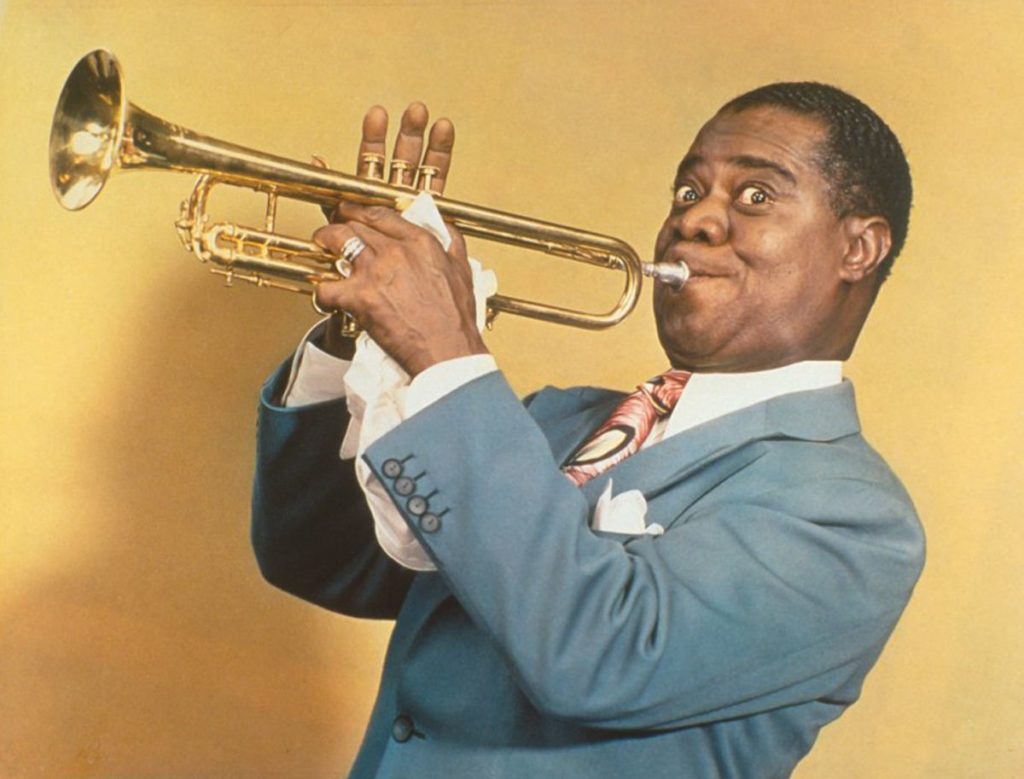All Hail The King
Louis Daniel Armstrong was an American trumpeter and vocalist. He is among the most influential figures in jazz. His career spanned five decades and different eras in the history of jazz. He came to prominence in the 1920s, influencing countless musicians with both his trumpet style and unique vocals. Armstrong’s charismatic stage presence impressed not only the jazz world but all of popular music. He recorded several songs throughout his career, including he is known for songs like “Star Dust,” “La Vie En Rose” and “What a Wonderful World.” Louis Armstrong was one of the most recognizable entertainers in the world.
His Rise to Fame
Louis Armstrong was born in one of the poorest parts of New Orleans on Aug. 4, 1901. When Armstrong was 11 years old, he was sent to an alternative home. While there, he had his first formal music lessons and played in the home’s brass band. From then on, he supported himself as a musician, playing with bands and in small clubs with his mentor Joe “King” Oliver. Armstrong advanced rapidly while he played in marching and jazz bands. In the early 1920s he played in Mississippi riverboat dance bands.
His Explosive Career

Louis Armstrong is known as a jazz trumpeter, but his singing also had a huge influence on later artists. His vocals and the powerful feeling of swing that he brought to everything he sang loosened up the more formal style of his counterparts. Where many singers would stick closely to a pop song’s original melody in performance, Armstrong often times introduced melodic variations. In every performance, he turned every song that he sang into a reflection of his own personality. In 1926, he was a headliner on records and radio, and in jazz clubs. He had the ability to wow his audiences with the fearlessness and freedom of his trumpet solos. His “scat” singing transformed vocal tradition and musicians studied his recordings to hear what a horn could do. Singing became a huge part of his musical persona and influenced artist that came after him.
Cultural Legacy
Louis Armstrong permanently changed Jazz by making the soloist the focal point of the performance. From the beginning of his career as a bandleader, Armstrong created ensembles to showcase his spectacular trumpet playing. His music had such an important effect on jazz history that many scholars, critics, and fans call him the first great jazz soloist. Armstrong’s influence extendes far beyond jazz.


